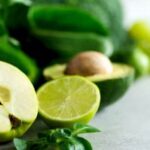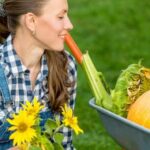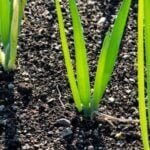What’s the best fertilizer for vegetable gardens? Choosing the right fertilizer is crucial for the health and productivity of your plants. A balanced combination of essential nutrients can promote robust growth and bountiful harvests. In this article, we will explore the different types of vegetable fertilizers available, the importance of NPK ratios, and the best practices for application to help you make informed decisions for your garden.
Using the right fertilizer is essential for maintaining the health and productivity of vegetable gardens. Whether you are a seasoned gardener or just starting out, understanding the significance of proper fertilization can have a significant impact on your harvest. By providing essential nutrients, fertilizers can help improve soil fertility, support plant growth, and increase resistance to pests and diseases.
In this article, we will delve into the world of vegetable fertilizers, exploring various types such as organic and synthetic options. We will also discuss the significance of NPK (nitrogen, phosphorus, potassium) ratios in fertilizers and their role in supporting different types of vegetables.
Additionally, we will provide practical guidance on how to apply fertilizers effectively and offer recommendations for some of the best products available in the market. Stay tuned to learn more about choosing the best fertilizer for your vegetable garden.
Types of Vegetable Fertilizers
When it comes to choosing the best fertilizer for vegetable gardens, there are various options available, including organic, synthetic, liquid, and granular fertilizers. Each type has its own set of benefits and drawbacks, so it’s essential to understand the differences to make an informed decision for your garden.
Organic fertilizers are derived from natural sources such as plants, animals, and minerals. They are environmentally friendly and work to improve soil structure and fertility over time. Common types of organic fertilizers for vegetable gardens include compost, bone meal, fish emulsion, and seaweed-based products.
On the other hand, synthetic fertilizers are manufactured using chemical processes and provide a quick nutrient boost to plants. While they may have a more immediate impact on plant growth, they can also lead to soil depletion over time if not used properly. Liquid synthetic fertilizers are often applied through watering cans or sprayers, while granular options can be spread across the soil surface.
Choosing between organic and synthetic fertilizers ultimately depends on your gardening philosophy and specific needs. Organic options are better for overall soil health and long-term sustainability, while synthetic choices offer quick nutrients for immediate results. It’s important to weigh these factors carefully before making a decision on what’s the best fertilizer for your vegetable garden.
| Types of Fertilizers | Pros | Cons |
|---|---|---|
| Organic | Natural source, improves soil structure | Slower release of nutrients |
| Synthetic | Quick nutrient boost | Potential for soil depletion over time |
Understanding NPK
When it comes to choosing the best fertilizer for vegetable gardens, understanding the significance of nitrogen, phosphorus, and potassium (NPK) is crucial. NPK are the primary nutrients that plants require in order to grow and thrive. Each nutrient has a specific role in plant development, making it essential to choose the right NPK ratio for different types of vegetables.
Importance of NPK
Nitrogen is responsible for spurring leafy growth in plants and promoting lush foliage. Phosphorus plays a key role in root development, flowering, and fruiting, while potassium aids in overall plant health by improving disease resistance and supporting various physiological processes. Understanding these roles is important when selecting the right fertilizer for specific vegetables to ensure they receive the necessary nutrients for optimal growth.
Choosing the Right NPK Ratio
Different types of vegetables have varying nutrient requirements at different stages of their growth. For example, leafy greens like lettuce and spinach benefit from higher nitrogen levels to foster healthy leaf production, while root crops such as carrots and beets require more phosphorus for robust root development.
Additionally, fruiting vegetables like tomatoes and peppers need ample potassium to support flower formation and fruit production. By understanding the specific needs of each type of vegetable, gardeners can choose fertilizers with suitable NPK ratios to meet those needs.
Factors Influencing NPK Ratios
In addition to considering the nutrient requirements of different vegetables, other factors such as soil composition, existing nutrient levels, and environmental conditions also influence the selection of the appropriate NPK ratio for fertilizers. Conducting soil tests can provide valuable insights into current nutrient levels and help determine which nutrients may be lacking or excessive in the soil, guiding gardeners in choosing fertilizers with tailored NPK ratios that address specific deficiencies or imbalances.
By understanding NPK ratios and how they correspond to the nutrient needs of different vegetables, gardeners can make informed decisions when selecting fertilizers for their vegetable gardens. This knowledge allows for more customized care that addresses the unique requirements of each type of plant, ultimately leading to healthier, more productive vegetable crops.
Organic Fertilizers
When it comes to nourishing your vegetable garden, organic fertilizers are often the preferred choice for many gardeners. These natural products are derived from living organisms and offer several benefits for both the plants and the environment. By using organic fertilizers, you can promote healthier soil, enhance plant nutrition, and reduce the risk of chemical run-off.
Additionally, organic fertilizers are known for improving soil structure and overall sustainability. But what’s the best fertilizer for vegetable gardens among these options?
- Compost: Compost is a popular choice among gardeners for its rich nutrients and ability to improve soil quality. Made from decomposed organic matter such as food scraps, yard waste, and manure, compost provides a diverse range of essential nutrients for vegetables. Furthermore, it aids in retaining moisture in the soil and minimizes weed growth. By incorporating compost into your vegetable garden, you can create a thriving ecosystem that supports healthy plant growth.
- Fish Emulsion: Fish emulsion is another valuable organic fertilizer that offers high levels of nitrogen, phosphorus, and trace minerals beneficial for vegetable plants. This liquid fertilizer is made from fish remains and works well as a quick-release nutrient source for vegetables during their active growing periods. Fish emulsion can be applied directly to the soil or used as a foliar spray to provide an immediate boost of nutrients to your plants.
- Seaweed-Based Fertilizers: Seaweed-based fertilizers are derived from various types of seaweed and offer a plethora of micronutrients that benefit vegetable gardens. These organic products contain compounds such as cytokinins, auxins, and gibberellins that stimulate plant growth, enhance stress tolerance, and improve overall productivity.
Seaweed-based fertilizers also help in enhancing soil microbial activity which further supports plant health. Whether used as a liquid concentrate or incorporated into the soil as a dry amendment, seaweed-based fertilizers are an excellent choice for promoting robust growth in your vegetable garden.
By choosing organic fertilizers such as compost, fish emulsion, and seaweed-based products for your vegetable garden, you can ensure that your plants receive essential nutrients in an environmentally friendly manner while fostering a sustainable ecosystem within your gardening space.
Synthetic Fertilizers
One of the key advantages of synthetic fertilizers is their immediate availability to plants. These fertilizers are water-soluble, allowing the nutrients to be readily absorbed by the roots for quick results. Additionally, synthetic fertilizers can be tailored to meet specific nutrient requirements, providing a precise blend of nitrogen (N), phosphorus (P), and potassium (K) based on the needs of different vegetables. This level of customization can be particularly beneficial for optimizing plant growth and yield.
On the other hand, there are some drawbacks associated with the use of synthetic fertilizers in vegetable gardens. Overuse or improper application of these fertilizers can lead to nutrient imbalances in the soil, resulting in damage to both plant health and environmental sustainability. Moreover, continuous reliance on synthetic fertilizers may disrupt natural soil ecosystems and microbial activity over time.
Despite these drawbacks, there are several common synthetic fertilizer options available in the market that are widely used for vegetable gardening. Some popular choices include ammonium nitrate, urea, and superphosphate. Gardeners should carefully consider their specific needs and preferences when selecting a synthetic fertilizer for their vegetable garden while being mindful of potential risks associated with its use.
Application Methods
When it comes to fertilizing your vegetable garden, knowing the right application methods is just as important as choosing the right type of fertilizer. Properly applying fertilizers ensures that your plants receive the necessary nutrients for optimal growth and productivity. There are several application methods to consider, including top dressing, side dressing, and foliar feeding techniques.
Top dressing involves spreading a layer of fertilizer on the surface of the soil around the base of the plants. This method is ideal for slow-release fertilizers or organic options such as compost. It allows for gradual nutrient release as the fertilizer breaks down, providing a steady supply of nutrients to the plants over time. Top dressing is convenient and can be done throughout the growing season to replenish nutrients in the soil.
Side dressing entails creating a shallow trench or furrow beside the plant’s root zone and placing granular or liquid fertilizer directly into the trench. This method delivers a concentrated dose of nutrients where they are most needed, promoting rapid uptake by the plants. Side dressing is particularly effective for quick-growing vegetables that have high nutrient demands, such as tomatoes and peppers.
Foliar feeding involves applying liquid fertilizer directly to the leaves of plants, allowing them to absorb nutrients through their foliage. This method provides a fast nutrient boost and can be beneficial during periods of rapid growth or when plants show signs of nutrient deficiencies.
However, foliar feeding should be done in moderation and not as a sole means of fertilization, as it is less efficient than root absorption. Additionally, it is essential to apply foliar sprays in early morning or late afternoon to avoid leaf burn from sunlight.
Best Practices
When it comes to maintaining a healthy and productive vegetable garden, using the right fertilizer is crucial. But knowing what’s the best fertilizer for vegetable gardens can be overwhelming with so many options available. That’s why understanding best practices for using fertilizers is essential for ensuring the success of your gardening efforts.
One important aspect of using fertilizers in vegetable gardens is timing. It’s important to apply fertilizers at the right time to maximize their effectiveness. Generally, it’s recommended to fertilize vegetables at planting, during their active growth phase, and when they start producing fruits. Additionally, some vegetables may require specific timing for fertilizer application based on their growth cycle and nutritional needs.
Frequency of fertilizer application is another key factor to consider. Vegetable plants have varying nutrient requirements at different stages of growth, so it’s important to adjust the frequency of fertilization accordingly. For example, fast-growing and heavy-feeding vegetables may need more frequent fertilization compared to slower-growing varieties. It’s also important to monitor the soil’s nutrient levels and adjust the frequency of fertilization as needed.
In addition to timing and frequency, determining the right quantity of fertilizer is essential for promoting healthy plant growth without risking over-fertilization. Applying too much fertilizer can lead to nutrient imbalances, burn roots, or harm beneficial soil organisms.
On the other hand, under-fertilizing can result in nutrient deficiencies and poor plant growth. Therefore, following specific guidelines for each type of vegetable and considering factors such as soil quality and environmental conditions can help determine the appropriate quantity of fertilizer for your garden.
Recommended Fertilizers
In conclusion, choosing the best fertilizer for vegetable gardens is essential for ensuring the health and productivity of your plants. By understanding the different types of fertilizers available, such as organic and synthetic options, gardeners can make informed decisions on what will work best for their specific needs. Additionally, considering the NPK ratio and applying fertilizers using proper techniques can further optimize plant growth and yield.
When it comes to organic fertilizers, options such as compost, fish emulsion, and seaweed-based fertilizers offer numerous benefits for vegetable gardens. These natural options not only provide essential nutrients to the plants but also improve soil structure and promote overall soil health. On the other hand, synthetic fertilizers offer quick nutrient release and precise control over nutrient levels, making them suitable for specific deficiencies in vegetable gardens.
Furthermore, following best practices such as timely and appropriate application of fertilizers is crucial for avoiding over-fertilization or under-fertilization issues that could harm plant growth. By carefully considering factors such as budget constraints, specific nutritional needs of different vegetables, and personal preferences regarding organic or synthetic options, gardeners can find the best fertilizer that suits their unique requirements while supporting the flourishing growth of their vegetable gardens.
Ultimately, by choosing the right fertilizer and employing effective application methods, gardeners can help ensure a bountiful harvest from their vegetable gardens season after season.
Frequently Asked Questions
What Is 10-10-10 Fertilizer Good For?
10-10-10 fertilizer is good for providing a balanced mix of essential nutrients to plants. With equal parts of nitrogen, phosphorus, and potassium, this type of fertilizer can promote healthy growth, strong roots, and vibrant blooms in various types of plants.
How Do I Apply 10-10-10 Fertilizer to My Vegetable Garden?
When applying 10-10-10 fertilizer to your vegetable garden, it is important to follow the instructions on the packaging. Typically, you would sprinkle the granules evenly over the soil around the base of your vegetable plants. Be sure not to apply too much, as over-fertilizing can harm your plants.
How Often Should You Fertilize Your Vegetable Garden?
The frequency of fertilizing your vegetable garden depends on various factors such as the type of vegetables you are growing, the quality of your soil, and the specific needs of your plants. As a general guideline, a good practice is to fertilize your vegetable garden at planting, then again mid-season if necessary, and then in late summer or early fall to support fruit development before harvest.
Always refer to the instructions on the fertilizer packaging for specific guidance.

If you’re looking to get into vegetable gardening, or are just looking for some tips on how to make your current garden better, then you’ve come to the right place! My name is Ethel and I have been gardening for years. In this blog, I’m going to share with you some of my best tips on how to create a successful vegetable garden.





